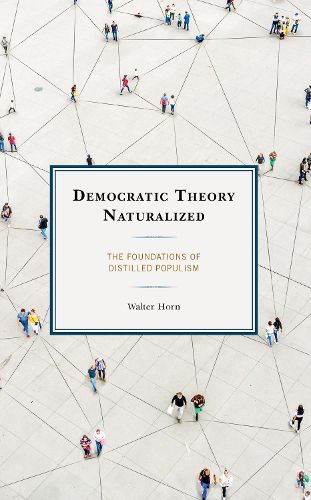Readings Newsletter
Become a Readings Member to make your shopping experience even easier.
Sign in or sign up for free!
You’re not far away from qualifying for FREE standard shipping within Australia
You’ve qualified for FREE standard shipping within Australia
The cart is loading…






To some, the word populism suggests the tyranny of the mob; to others, it suggests a xenophobic nativism. It is often even considered conducive to (if not simply identical to) fascism. In Democratic Theory Naturalized: The Foundations of Distilled Populism, Walter Horn uses his theory of CHOICE Voluntarism to offer solutions to some of the most perplexing problems in democratic theory and distill populism to its core premise: giving people the power to govern themselves without any constraints imposed by those on the left or the right. Beginning with explanations of what it means to vote and what makes one society better off than another, Horn analyzes what makes for fair aggregation and appropriate, deliberative representation. Through his examination of the American government, Horn suggests solutions to contemporary problems such as gerrymandering, immigration control, and campaign finance, and offers answers to age-old questions like why dissenters should obey the majority and who should have the right to vote in various elections.
$9.00 standard shipping within Australia
FREE standard shipping within Australia for orders over $100.00
Express & International shipping calculated at checkout
To some, the word populism suggests the tyranny of the mob; to others, it suggests a xenophobic nativism. It is often even considered conducive to (if not simply identical to) fascism. In Democratic Theory Naturalized: The Foundations of Distilled Populism, Walter Horn uses his theory of CHOICE Voluntarism to offer solutions to some of the most perplexing problems in democratic theory and distill populism to its core premise: giving people the power to govern themselves without any constraints imposed by those on the left or the right. Beginning with explanations of what it means to vote and what makes one society better off than another, Horn analyzes what makes for fair aggregation and appropriate, deliberative representation. Through his examination of the American government, Horn suggests solutions to contemporary problems such as gerrymandering, immigration control, and campaign finance, and offers answers to age-old questions like why dissenters should obey the majority and who should have the right to vote in various elections.